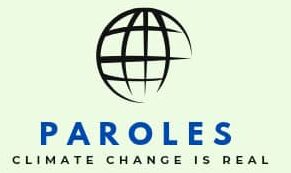Photo Credit unsplash/Danny Oliva
An upcoming EU directive will force gas exporters to reduce their methane emissions or pay fees. The methane rule is designed to force global gas producers who want access to the lucrative EU market to reduce a potent greenhouse gas - a policy at odds, for example, with the Trump administration's planned elimination of national emissions regulations. EU officials have stated that there are no plans to exempt US gas from methane regulations (nor from a series of broader carbon import tariffs that come into effect next year).
The EU rules could keep the pressure on US gas companies. However, some industry analysts also fear that the EU rules could be watered down. Trump is used to using liquefied natural gas exports as a cudgel in foreign policy and trade negotiations: Ukraine, India, Japan and Taiwan are among the countries that have pledged to buy more US LNG in the hope of currying Trump's favour.
In Europe, where gas prices are higher than they have been for years and Russian pipelines are unlikely to reopen anytime soon, higher imports from the US are likely no matter what Trump does. The question now is what emissions standards will apply to these imports - and how European leaders will balance the trade-offs between appeasing Trump, maintaining affordable energy and tackling climate change.
Relaxing methane standards "might be something [the EU] can offer as a negotiating point for these tariff threats," said Anne-Sophie Corbeau, a gas market scholar at Columbia University's Center on Global Energy Policy.
From May, EU gas importers will have to report on the methane intensity of their products, meaning they will have to obtain emissions data from their overseas trading partners. Imports that do not fulfil the strict methane standards will be subject to additional charges until 2027.
EU officials, in consultation with European gas companies, are working on a new methane emissions trading market that would allow high methane gas to be labelled as low methane by purchasing a certificate from low methane producers in another country, separating the physical gas molecules from their emissions profile. This would ensure that enough US gas reaches European consumers at a reasonable price, and funds would flow back to US gas companies that have already invested in methane reduction measures.
"The less volumes we have that can meet the [methane] requirements, the higher the premium [for low methane gas] will be. So there is a clear link with affordability, and that is the main focus in Europe today," says Gunnar Steck, senior consultant at trading group Eurogas.
The problem, say some industry experts, is that this so-called "book and claim" system only targets the lowest hanging methane emissions and rewards the cheapest and easiest reductions, which would probably have happened in any case, while letting everyone else off the hook.
"An unrestricted "book-and-claim" system fundamentally undermines the intent of the regulation and nullifies what is currently the most robust and only international methane regulation," says Carlos Garcia, Strategic Business Development Manager at environmental commodities trading firm STX Group. Working with the US research and advocacy group Clean Air Task Force (CATF), Garcia argues instead for a system in which emissions trading is still allowed, but only between producers within the same region or those physically connected by pipelines. This would ensure that methane rules continue to lead to a reduction in overall emissions but do not cause price spikes.
Even if the US and EU weaken their respective methane rules, US gas producers will still be under pressure to clean up their plants, said Brandon Locke, policy manager for Europe at CATF. Japan, South Korea and other countries that are major markets for U.S. LNG are also developing their own methane regulations. The danger for US producers is that competing exporters such as Qatar and Australia will step up with relatively cheap emissions upgrades and take the butter off their bread if they are lax on methane. Wall Street is also increasingly focussing on methane, says Locke.
"There will be significant political pressure on the EU on this issue, but the reality is that globally traded gas will increasingly have to prove its environmental impact," he said. "Investors are demanding concrete emissions data, and for companies looking to borrow money, this has a significant impact on their cost of capital."
Silvia Rausch-Becker Redakteurin
Reporter
Matflixx
MBI TradeNews Emissions
MBI TradeNews Energy
MBI Energy 4.0
MBI E-Mobility

